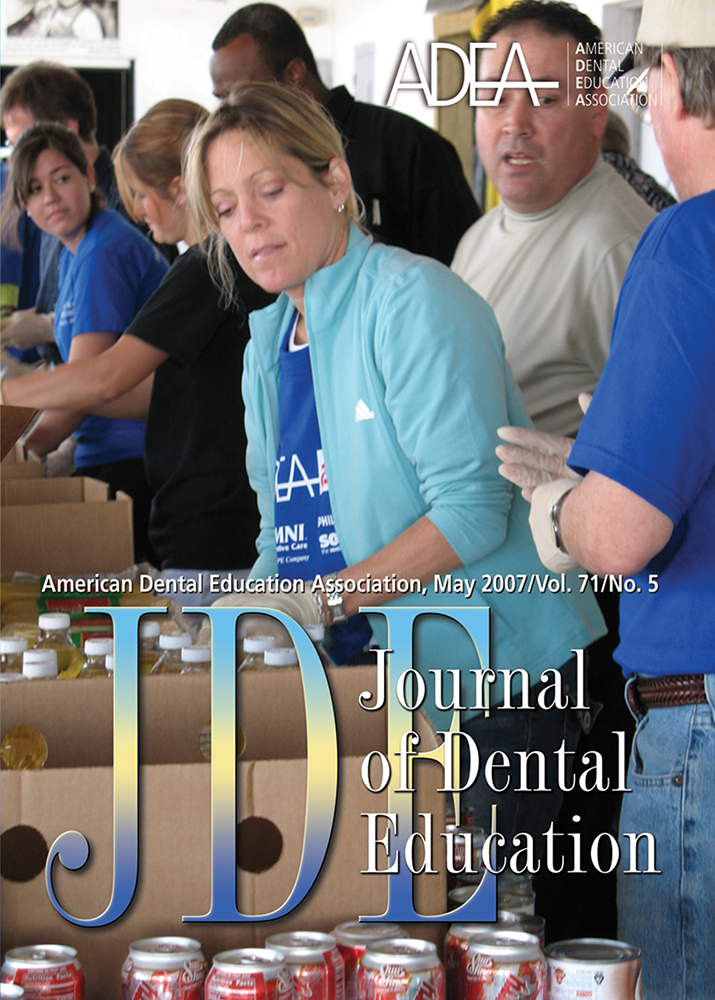Students’ Opinions About Treating Vulnerable Populations Immediately After Completing Community-Based Clinical Experiences
This project was supported, in part, by NIH/NIDCR T32 DE14678 and Dows Student Research Award, University of Iowa College of Dentistry.
Abstract
The purpose of this study was to analyze students’ perceptions of comfort and anticipated willingness to treat selected special needs and traditionally underserved populations immediately upon completion of community-based clinical assignments. The sample consisted of University of Iowa senior dental students who completed a questionnaire that asked, in part, about student comfort with and future willingness to treat twelve vulnerable population groups. With student comfort and future willingness to treat each group as dependent variables, logistic models were developed to determine whether there were significant associations between dependent variables and gender, graduation year, and students’ prior experience with these groups. Regression models indicate students’ prior experience is most often associated with comfort in treating the associated population group. Likewise, experience and comfort add different dimensions to perceived future willingness to treat almost all of the twelve groups. Student gender, graduation year from dental school, and community assignments influence only a few of these targeted population groups. This study provides empirical evidence concerning students’ perceptions about comfort with various vulnerable populations after completing their extramural rotations. Students were more comfortable treating certain population groups as well as more willing to consider including these groups in their future practices.




